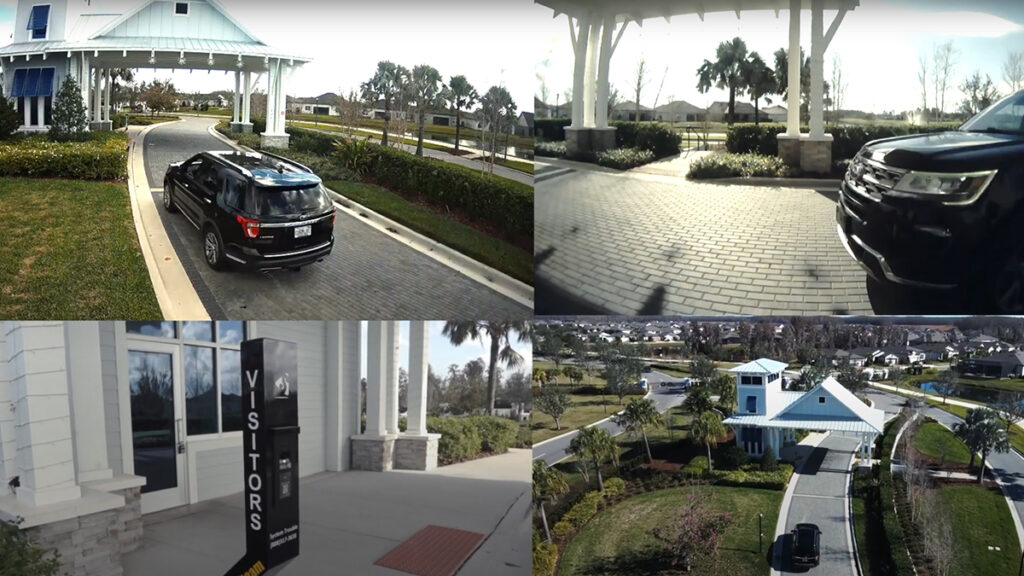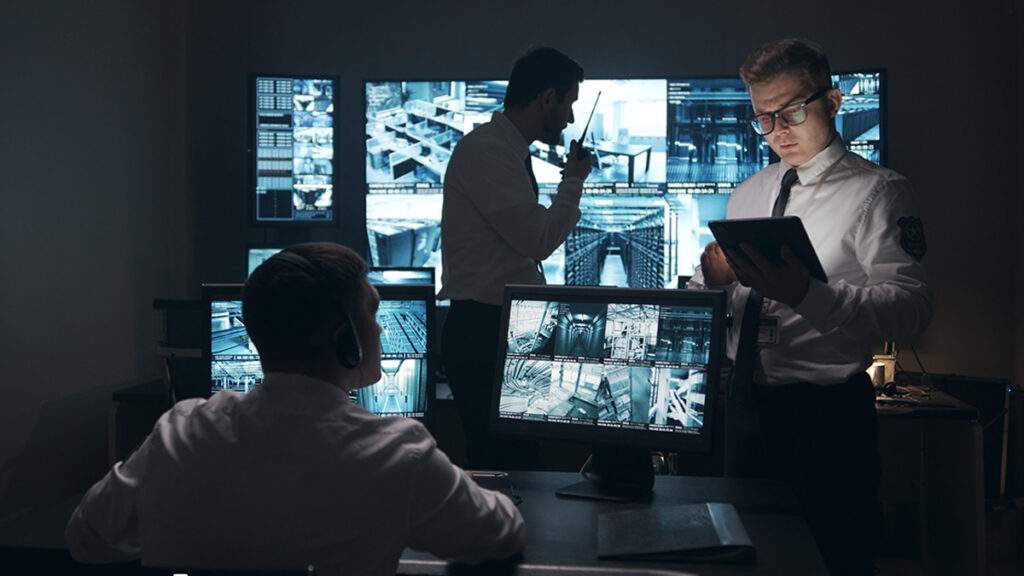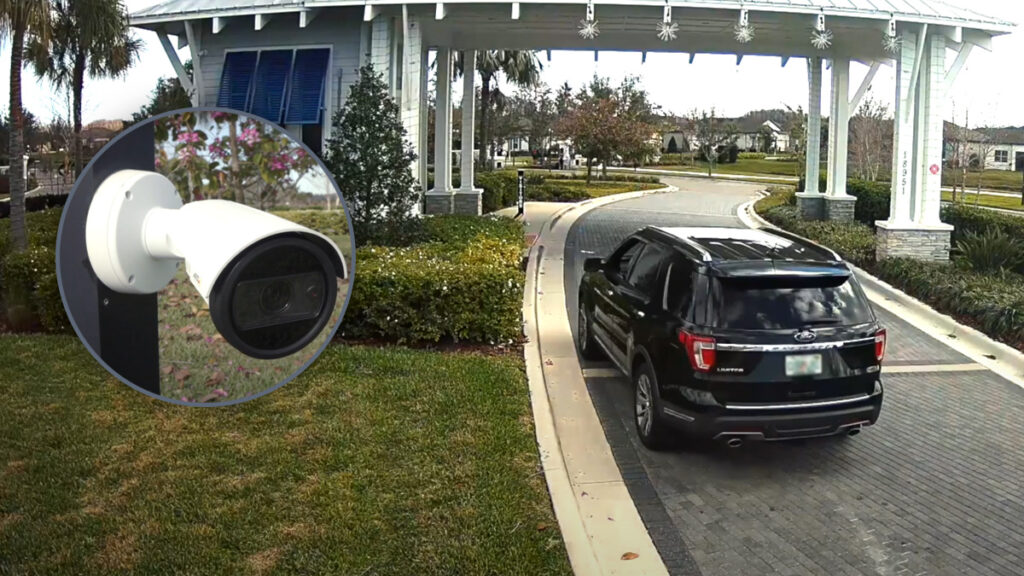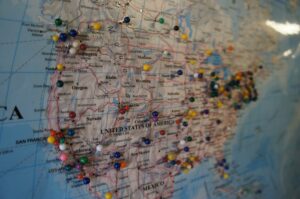As technology advances, homeowners associations (HOAs) can benefit from innovative remote security solutions that offer cost savings, improved efficiency, and added peace of mind for residents. But how do these remote security options compare to traditional on-site security guards, and what cutting-edge technologies are available to enhance the safety of your community? In this blog post, we’ll explore the benefits and strategies for implementing remote security in HOAs in 2023.
Short Summary
- Remote security solutions offer cost savings, improved monitoring and response capabilities, 24/7 surveillance for HOAs.
- Assess property needs and select a provider to ensure an effective system is implemented with existing measures.
- Address common concerns of privacy, reliability & emergency response coordination for peace of mind & enhanced safety in the community.
The Advantages of Remote Security for HOAs
Remote security provides a range of benefits for HOAs, including:
- Cost savings by replacing on-site security guards with remote guarding services
- More efficient monitoring and response to potential threats
- 24/7 surveillance for peace of mind
Read on to learn more about these advantages and how they can help your community thrive.
Cost-effective alternative to on-site security guards
The costs associated with hiring on-site security guards can quickly add up, making it difficult for many HOAs to maintain adequate security. Remote guarding services, on the other hand, offer a more cost-effective solution by:
- Reducing the need for personnel and resources
- Tailoring security systems to the specific needs of a property
- Monitoring the most vital areas without the expense of maintaining a full-time security staff
By implementing remote security, HOAs can see significant savings compared to traditional on-site guards. This cost reduction makes the community more secure and appealing for potential renters and homebuyers, ultimately contributing to the overall success of the HOA.
Increased efficiency in monitoring and response
One of the most significant advantages of remote security is the increased efficiency in monitoring and responding to potential threats. Remote guarding services provide cost-effective, flexible, and highly effective monitoring, allowing for visual confirmation and rapid response time from law enforcement. Remote guards are trained to assess the legitimacy of potential threats and determine the most suitable course of action, whether that be notifying on-site security or alerting the relevant authorities to expedite emergency response.
This enhanced efficiency not only leads to faster response times, but also helps to deter potential threats before they can cause harm. The result is a safer, more secure community that is more attractive to potential residents.
24/7 surveillance for peace of mind
Remote security solutions offer round-the-clock surveillance, providing residents with a heightened sense of security and peace of mind. Some benefits of remote security solutions include:
- 24/7 surveillance ensures that any suspicious activity is quickly detected and addressed
- Increased safety and security for residents
- Deterrence of criminal activity
- Enhanced property value and marketability
These advantages make the community more competitive in the housing market, bringing you closer to your dream home and making it easier to find your next home or explore renting options in the rentals.
Additionally, remote security systems typically include 24/7 video recording capabilities. This feature allows residents to review footage of any potential incidents that may have occurred on their property, further contributing to the overall security and development of the community.
Implementing Remote Guarding in Your HOA

To take full advantage of the benefits offered by remote security, it’s essential to properly implement remote guarding in your HOA. This process involves assessing your property’s needs, selecting the right remote security provider, and integrating the new system with existing security measures.
In the following sections, we’ll provide guidance on each of these crucial steps.
Assessing the property and determining needs
Before implementing remote guarding solutions, HOAs should evaluate their property and security requirements. Factors such as property size, the number of entrances and exits, and the desired level of security should be taken into account. By assessing the property and understanding its unique needs, HOAs can ensure that the remote security system is tailored to provide the most effective protection possible.
This initial assessment is crucial for determining the scope and scale of the remote security system. By identifying the specific areas that require monitoring, HOAs can avoid wasting resources on unnecessary security measures and ensure that the most critical areas are protected.
Selecting the right remote security provider
Choosing a reliable remote security provider is essential for ensuring the effectiveness of the system. When selecting a provider, it’s important to evaluate factors such as:
- The provider’s reputation
- The qualifications and training of the guards
- The cost of the system
- The customer service offered
In addition to these factors, it’s crucial to inquire about the provider’s:
- Security offerings, such as end-to-end encryption and multi-factor authentication
- Pricing and licensing
- Insurance coverage
- Service response time
- Reputation and customer reviews
By thoroughly vetting potential remote security providers, HOAs can ensure they are partnering with a company that will deliver the best possible protection for their community.
Integrating remote security with existing systems
Integration of remote security with existing systems is essential for seamless operation and enhanced protection. Remote security can be integrated with existing surveillance cameras, access control systems, and alarm systems, providing a more comprehensive security solution. Establishing a connection between remote security and existing systems ensures that all security measures work together effectively.
This integration allows for more efficient monitoring, faster response times, and increased safety for residents. Additionally, it helps to maximize the return on investment for both the remote security system and any pre-existing security measures, making it a perfect fit for enhancing overall security.
Innovative Technologies in Remote Security Solutions

Remote security solutions employ cutting-edge technologies to improve security in HOA communities. These innovative technologies, such as facial recognition, thermal imaging, and license plate capture, provide enhanced protection and contribute to the overall success of the community.
In this section, we’ll explore each of these technologies and their applications in remote security.
Facial recognition for access control
Facial recognition technology can play a significant role in access control, ensuring that only authorized individuals enter the property. This technology works by:
- Identifying individuals
- Authenticating their identity
- Allowing for more secure access to restricted areas
- Better monitoring of suspicious activity
In addition to access control, facial recognition can be used for:
- Detecting potential threats or unauthorized individuals
- Providing an additional layer of protection
- Maintaining the safety and security of the community.
Thermal imaging for detecting potential threats
Thermal imaging is another innovative technology employed in remote security solutions. This technology can detect heat signatures from people, animals, and objects, allowing security personnel to identify potential risks and take necessary action during their search for any sign of intrusion.
One key advantage of thermal imaging is its ability to detect potential threats even in low-light conditions. This capability ensures that security measures remain effective around the clock, providing peace of mind for residents and enhancing the overall security of the community.
License plate capture for tracking vehicles

You can add Automatic Number Plate Recognition to any gated community. License plate capture technology utilized in remote security solutions to:
- Monitor vehicles entering and exiting the property
- Detect suspicious activity
- Recognize vehicles entering and leaving the premises
- Identify potential threats.
By tracking vehicles, license plate capture technology adds another layer of security to the community. Susequently, ensures unauthorized vehicles are quickly detected and dealt with. This enhanced protection helps maintain the safety and security of the community, making it more attractive to potential residents.
Addressing Common Concerns about Remote Security

While remote security offers numerous benefits for HOAs, it’s essential to address common concerns such as privacy issues, the reliability of remote guarding systems, and emergency response coordination. By addressing these concerns, HOAs can ensure that residents feel confident in the security measures in place and that the remote security system operates effectively.
Privacy issues are a major concern for many HOAs. It is important to ensure that the system is successful.
Privacy concerns
Privacy is an important consideration when implementing remote security solutions. To address these concerns, it’s essential to implement strict data protection policies and ensure compliance with relevant regulations such as GDPR and HIPAA. By doing so, HOAs can strike a balance between providing effective security measures and protecting the privacy of their residents.
In addition to data protection policies, HOAs should also take steps to educate residents about best practices for maintaining their personal privacy and security. This education can help alleviate concerns and build trust in the remote security system.
Reliability of remote guarding systems
Ensuring the reliability of remote guarding systems is crucial for maintaining trust in the technology. To achieve this, it’s important to have a professional team of remote guards and to implement the correct placement of cameras, audio systems, and AI software to minimize false alarms.
Additionally, HOAs should work closely with their remote security provider to address any potential vulnerabilities, such as cyber-attacks, and to ensure that the system is regularly updated with the latest security patches.
Emergency response coordination
Effective coordination with emergency services is essential for timely response to incidents detected by remote security systems. HOAs should have a comprehensive plan in place for responding to any security incidents that may arise, including steps for identifying and responding to potential threats and protocols for notifying the relevant personnel in the event of an emergency.
By utilizing technology-based communication and collaboration tools, such as video surveillance and two-way audio, emergency services can be promptly alerted and respond effectively to any incidents detected by the remote security system. This improved coordination ensures the safety of both the public and emergency personnel.
Summary
Remote security solutions offer numerous benefits for HOAs, providing cost-effective, efficient, and round-the-clock protection for residents. By implementing remote guarding services, utilizing innovative technologies, and addressing common concerns, HOAs can enhance the security of their community and provide residents with the peace of mind they desire.
As we move into 2023, remote security will continue to evolve and play an increasingly important role in maintaining the safety and security of HOA communities. By staying informed and adapting to these changes, HOAs can ensure the continued success and well-being of their residents.
Frequently Asked Questions
What is remote security monitoring?
Remote Security Monitoring is a collection of security services that are provided remotely by a professional agent from a Monitoring Center.






